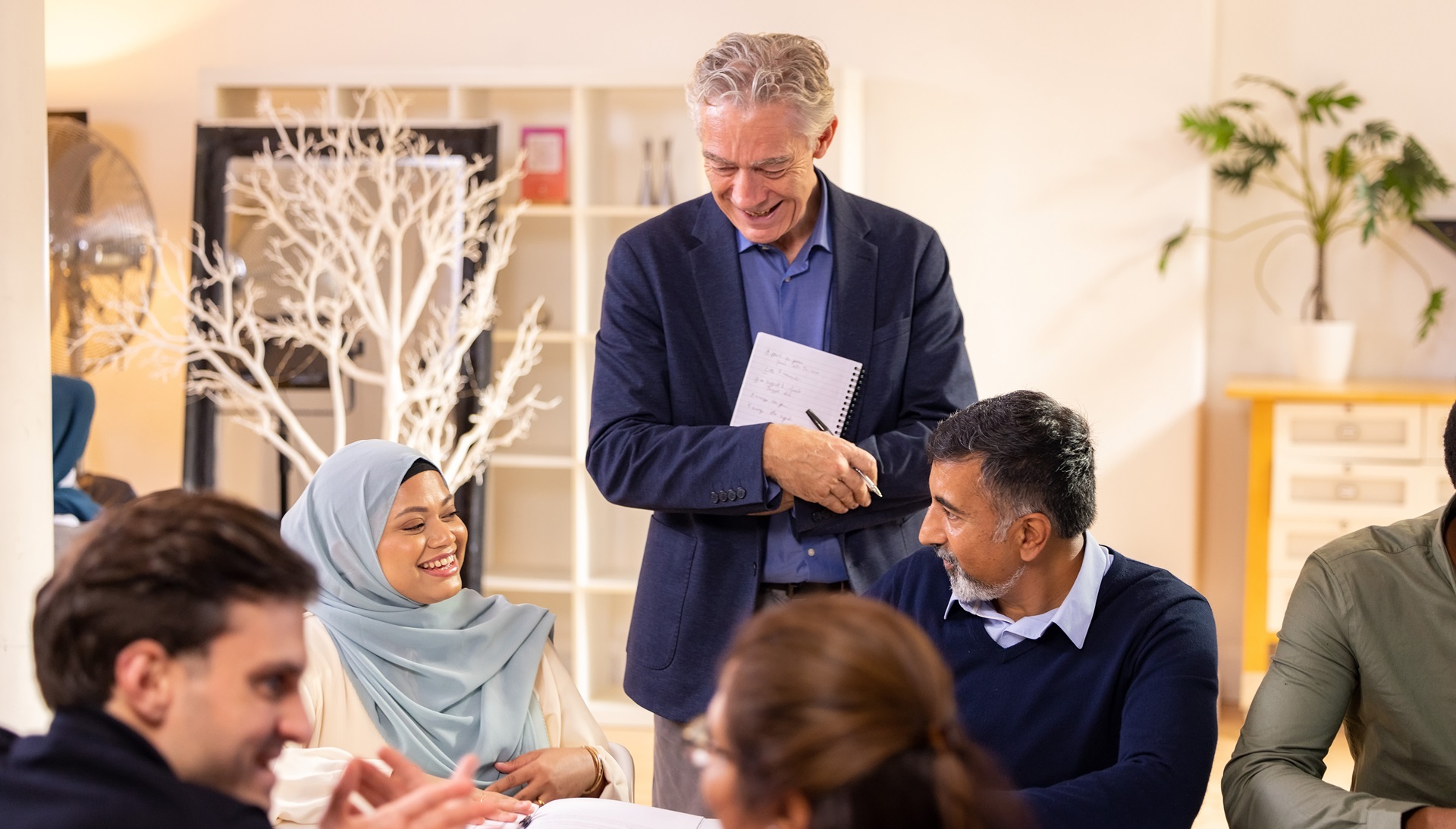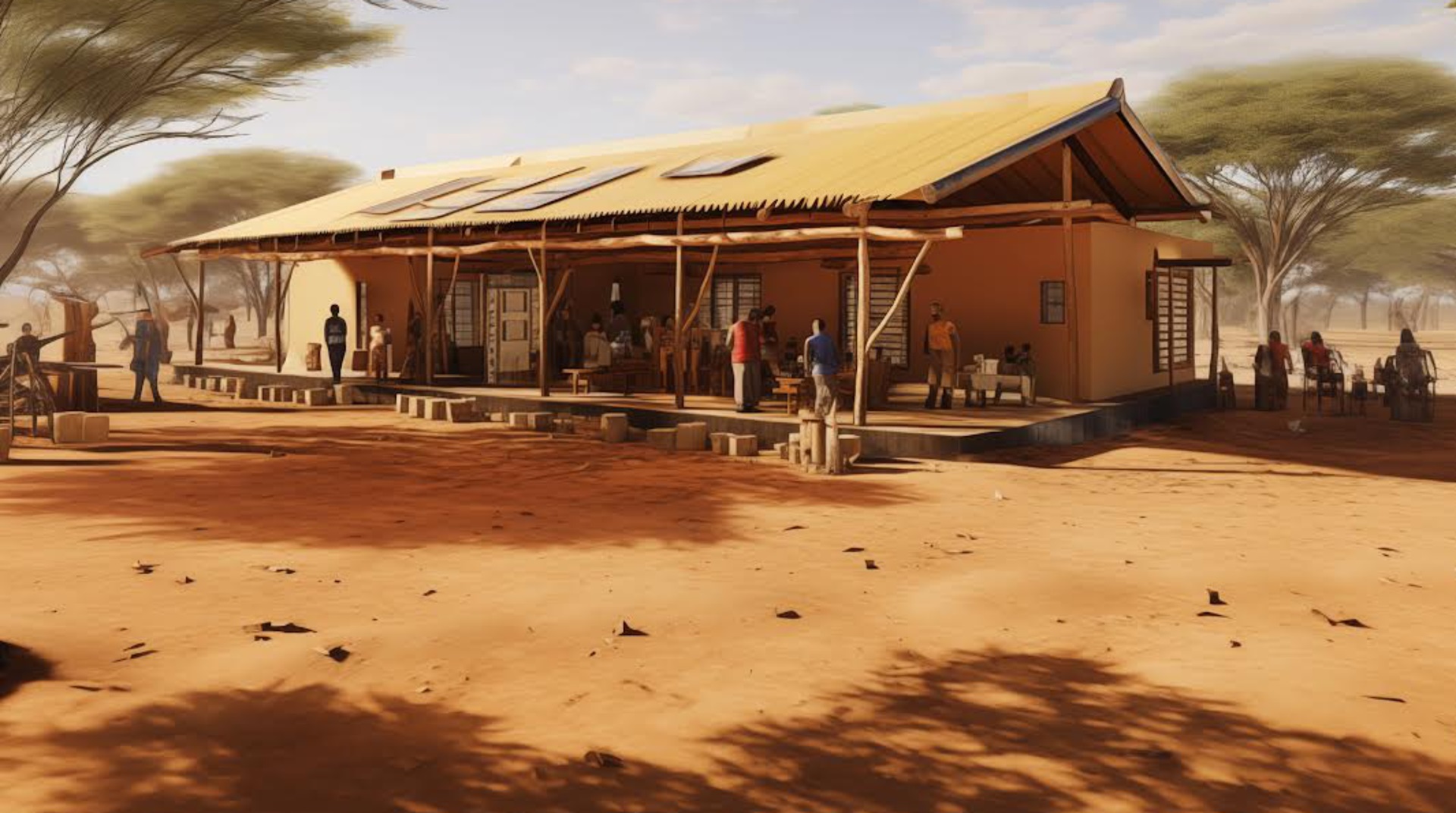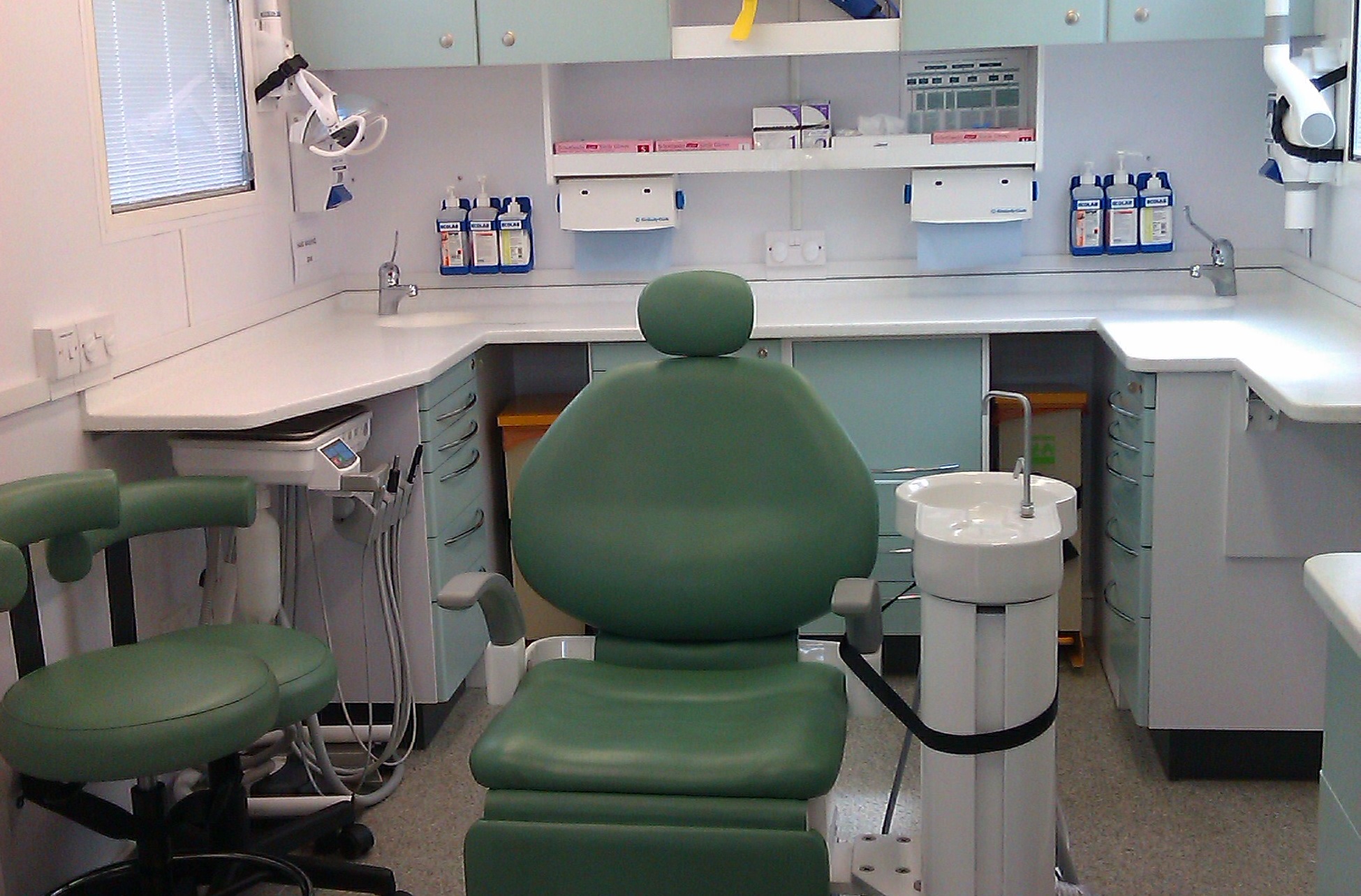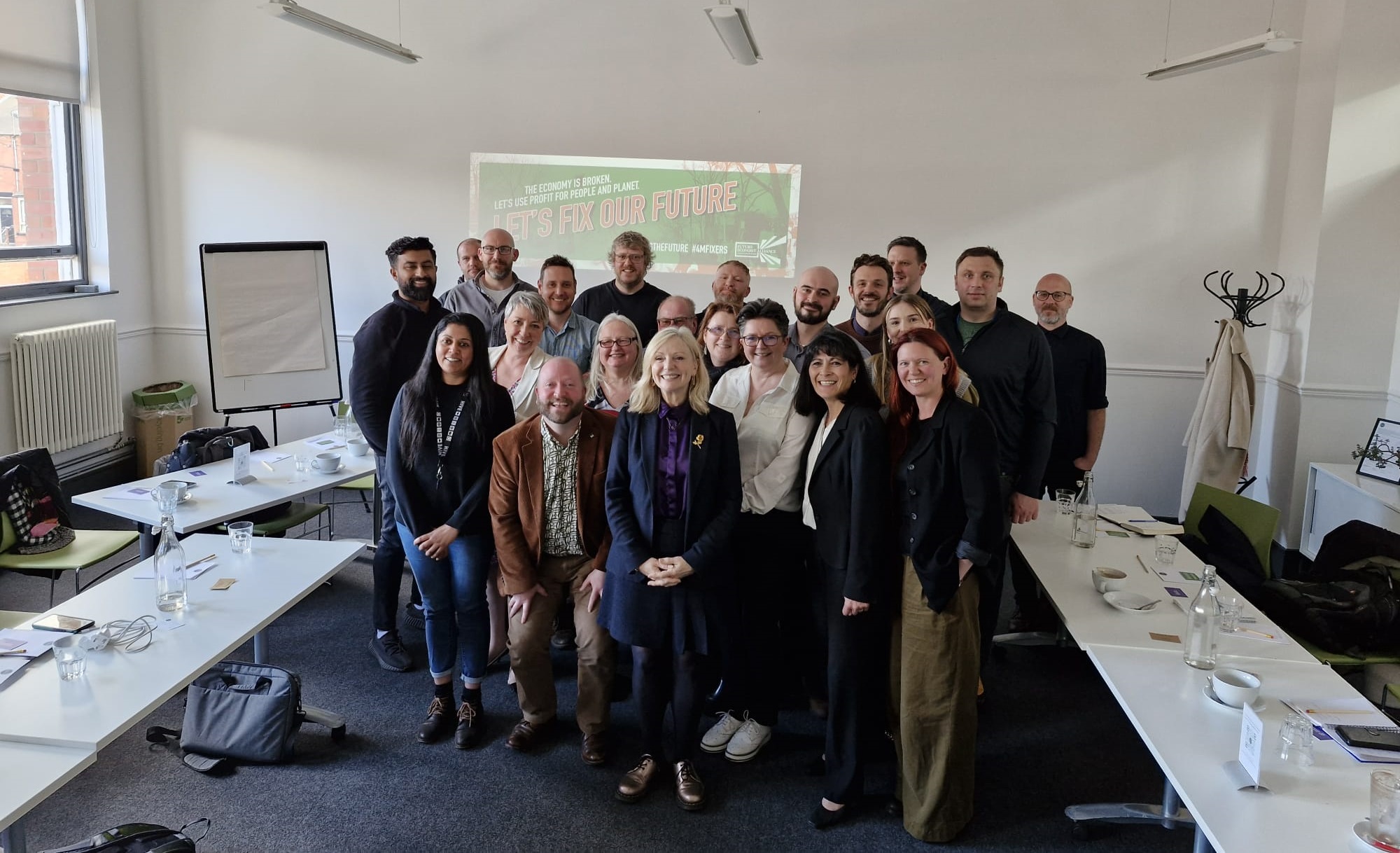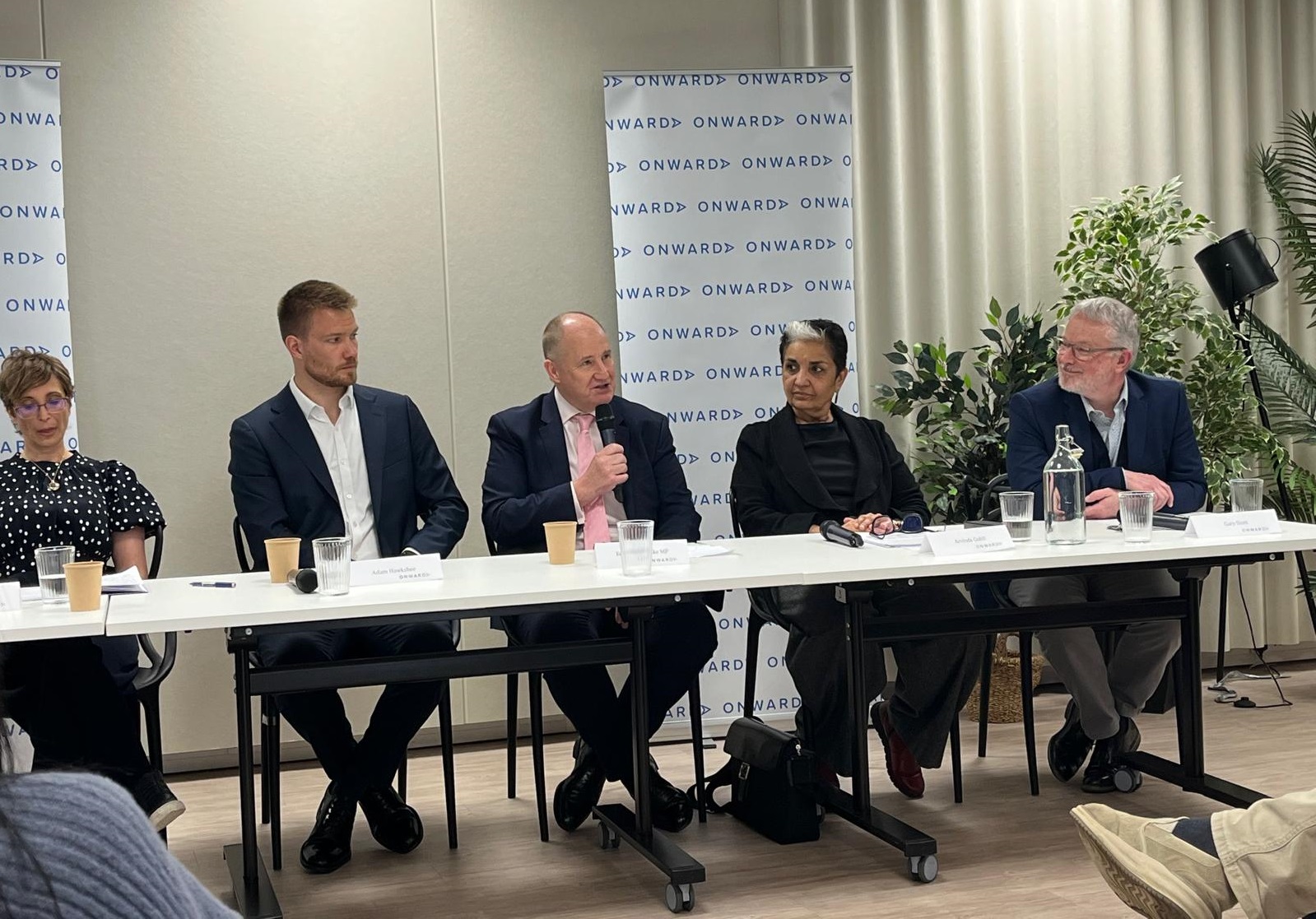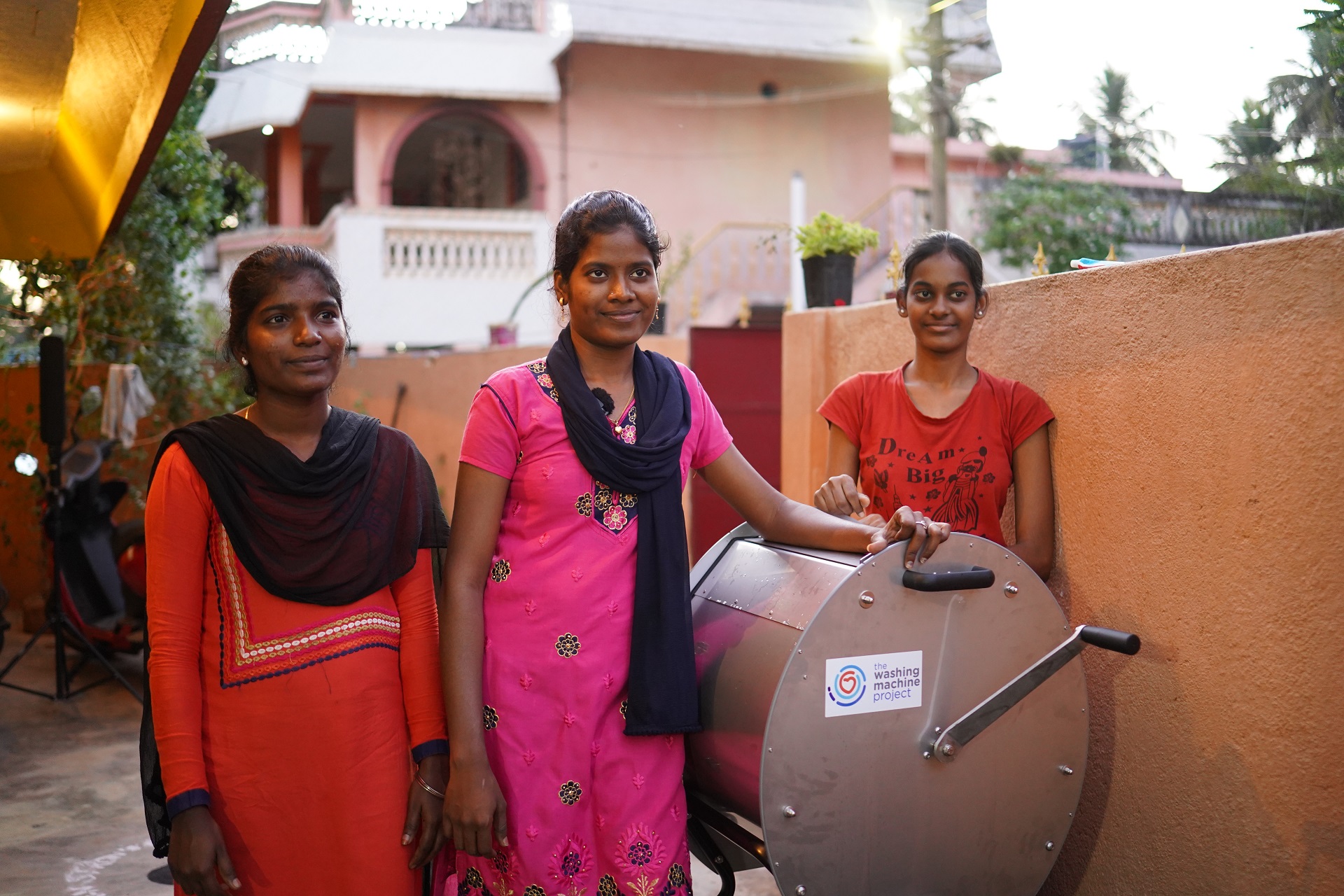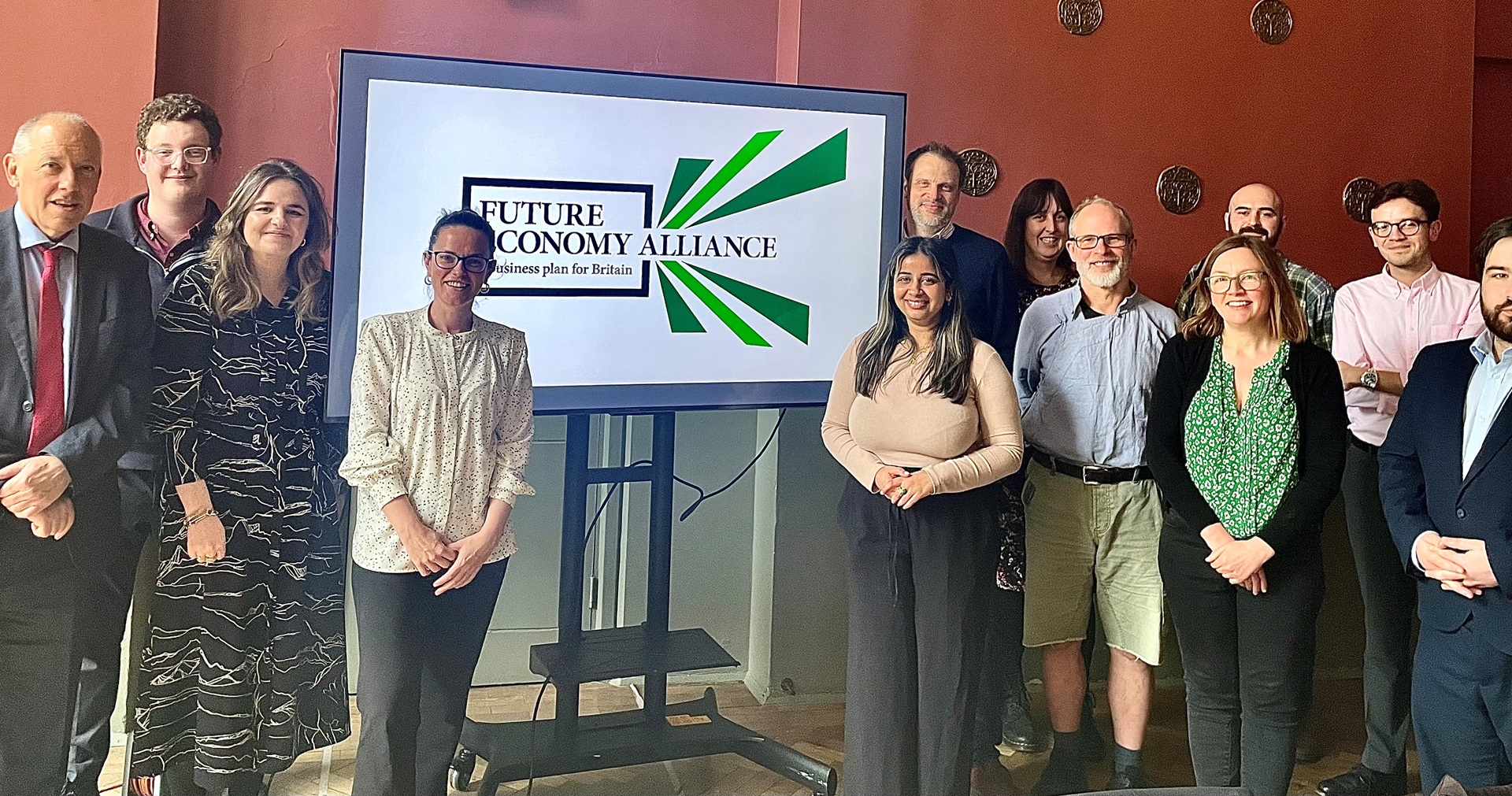
News
Bringing together social enterprises and other mission-led organisations to campaign for economic reform
On 2 May we joined hundreds of people from across our mission-led movement for a Future Economy Alliance battle planning session, preparing to push our sector up the policy agenda for the general election and beyond. Chaired by Alex Birtles, founder of our Alliance partner and supporter member In Good Company, the event brought campaigners together to discuss the role of mission-led organisations in the economy and how we can make our way of working the national norm. The need to change ‘business as usual’ The opening speaker was our Chair, Lord Victor Adebowale, who set out why social enterprises and other mission-led organisations are so vitally needed. Speaking from the House of Lords, he noted that life expectancy falls as you go further away from Westminster, with inequalities in everything from education to care and a growing sense of unease across the country. Summing up the need for the Future Economy Alliance, the people’s peer said: "Everywhere from our trains to our water, you can see it’s possible to run a frankly shocking service while providing vital resources and still make a profit. Most people in this country now feel things aren’t right, we’re being ripped off. There’s a fundamental problem with the system that shapes our lives, our economic infrastructure – so we have to challenge it and change it. We have one economy, we all work for it, and it has to work for all of us too." Emphasising the importance of action before a general election, he added: "If we keep doing what we’ve always done, we’ll get what we’ve always got, and that sense of it not being right will grow. Never before has the choice been so stark about the future that you want to vote for. The public have to get behind us and the politicians have to listen to us. Something different has to happen.” The new Business Plan for Britain The economy is broken and we know that our movement of mission-led organisations can offer solutions to fix it. Our director Dan Gregory set out the key themes of the Alliance’s ‘Business Plan for Britain’, which focuses on five key areas where policy intervention could unlock the full potential of our mission-led movement. Dan represented Social Enterprise UK but was joined by partners across the Alliance, which includes models from co-operatives and employee-ownership to community business and social investment- and what was evident from the conversation was the vital importance of collaboration so we can be stronger together. James Wright, Policy and Development Lead at Co-operatives UK, stated how important it is for co-ops to be part of a wider movement and highlighted the need to raise awareness of the mission-led sector beyond our individual business models. Oliver Smith, Deputy Chief Executive of the Employee Ownership Association, echoed this by talking about how we have more impact in numbers - emphasising the shared belief that “business and society are better when people have a meaningful stake and say in their work”. Helen Curr, CEO of healthcare social enterprise Here, stressed how it joined the campaign inspired by Nye Bevan’s original vision for the NHS based on a “redistribution of wealth and a re-balancing of society” and the desire to “raise a collective voice of doing things differently”. The final member of the panel was Ian McGrady, Managing Director of North West based social enterprise Edsential, which provides services for schools and joined the Alliance to “give us a larger voice”. Ian said that our sector has been “hiding in the shadows” but we can use the evidence of our collective impact to show that “this sector can be trusted with delivery”. Oliver echoed the importance of gathering and sharing good data on the benefits of our way of working, citing many examples: "We tend to be more productive, we benefit local economies, we do community work and volunteering, we have better supported employees and more diverse workforce – so the more of us that work together, the more we can achieve." The action you can take to fix our economy Through the discussion, the challenge was set out: to make our movement not a part of the economy but the heart of it. The Future Economy Alliance is nothing without the many hundreds of thousands of organisations we represent, and we need your help to make sure our leaders understand the scale and power of our sector. Your voices and stories are vital to showcase the value of mission-led organisations and push our way of working up the political agenda for the election and beyond. To help you do this, we’re going to be providing you with resources throughout this long campaign, starting with our campaign toolkit. This contains a template letter to invite your MP to your organisation, template press releases, social media copy and infographics to raise the profile of the work that you do and our wider mission-led movement. CLICK HERE TO ACCESS THE CAMPAIGN TOOLKIT You can watch the full recording of the webinar here.
4 min

